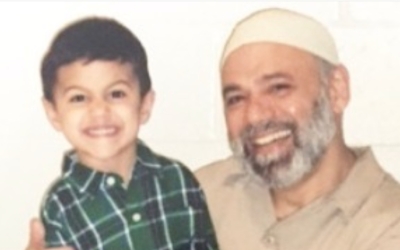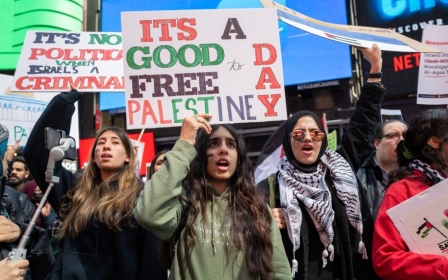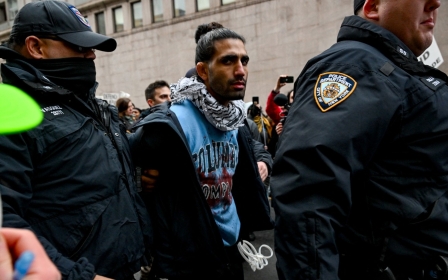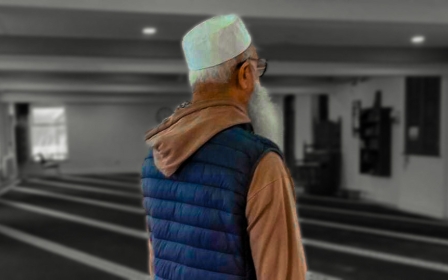Lawsuit targeting Unrwa USA aims to 'drain' resources from Palestinians
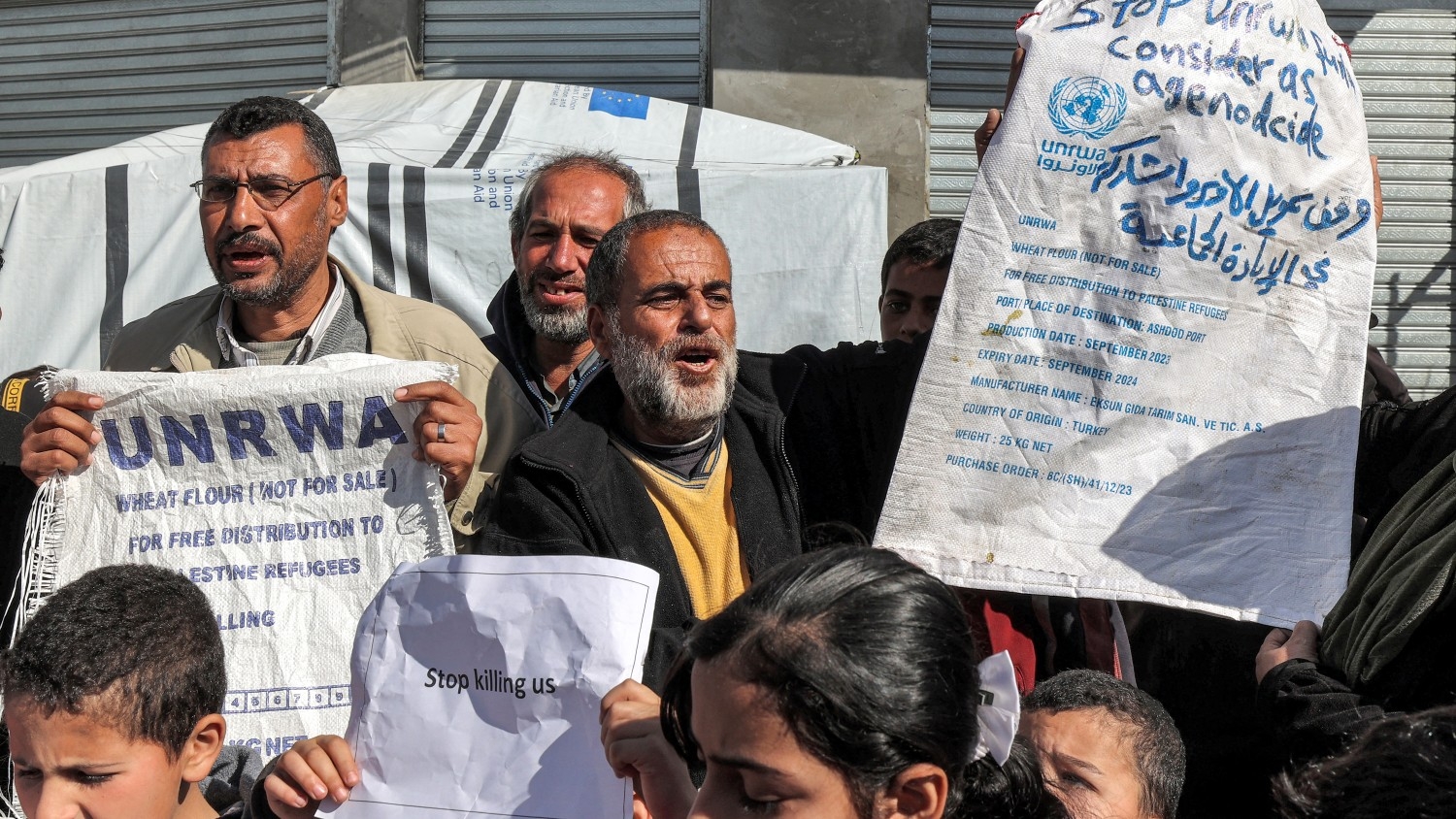
As the humanitarian situation deteriorates inside Gaza, a non-profit in the US is facing a legal battle that could see it lose the ability to be a major source of donations to the UN agency for Palestinian Refugees (Unrwa).
A coalition of pro-Israel groups in the US and families of the captives being held in Gaza is suing Unrwa USA over accusations that the non-profit is "aiding and abetting terrorism" and giving money to Hamas through its financial support to Unrwa. They claim Unrwa USA helped to fund the 7 October attacks against Israel.
Lawyers representing Unrwa USA filed a motion last week urging the court to dismiss the case on the grounds that the lawsuit does not provide any evidence to support its allegations.
"This case is about UNRWA USA, and the Complaint does not factually allege that a single cent of UNRWA USA’s contributions was allocated for any Hamas-related activities, much less to aid and abet the October 7 attacks," the motion said.
Unrwa USA's legal team told MEE that while they believe the lawsuit lacks merit, it serves as both a distraction to the ongoing crisis in Gaza and will drain the charity's resources.
New MEE newsletter: Jerusalem Dispatch
Sign up to get the latest insights and analysis on Israel-Palestine, alongside Turkey Unpacked and other MEE newsletters
"A goal of these accusations is to distract and also a goal of these lawsuits, in my view, is to really drain the resources of groups," said Diala Shamas, a senior staff attorney at the Center for Constitutional Rights, one of the organisations working in defence of Unrwa USA.
"While organisations like Unrwa USA are doing really important work trying to direct maximum humanitarian support to Palestinians in Gaza at a time that they need it the most, they're being distracted by having to defend against these lawsuits," Shamas told Middle East Eye.
Battle to defund Unrwa
Unrwa is a UN agency that was created in 1949 to serve the needs of Palestinian refugees inside the occupied Palestinian territories as well as Palestinian refugee communities in other countries like Lebanon, Jordan and Syria.
Over the past few months amid Israel's war on Gaza, Unrwa has played a vital role in facilitating the delivery of humanitarian aid to the people of Gaza.
However, since October when the war on Gaza broke out, Israel has been working to dismantle Unrwa, its operations inside the enclave, and its ability to raise funds.
The lawsuit from the families of Israeli hostages targets Unrwa USA, an independent non-profit organisation based in the US that works to "educate the American public about the plight of Palestine refugees and generate financial support for specific UNRWA programs", according to its website. Unrwa USA is also an entity separate from both Unrwa and the US government, the group said in a recent statement.
'This lawsuit is a sort of small sliver of a much larger story. And that larger story is the use and abuse of US terrorism laws to suppress solidarity with Palestinians'
- Diala Shamas, CCR
"This [lawsuit] is not a standalone attack on Unrwa USA," Shamas told MEE.
"This is part of the broader effort to defund Unrwa, to make it harder for people to give from the United States to Palestinians in Palestine and certainly in Gaza."
Shamas said that "Unrwa's been under attack for that reason, for a very long time, for decades, and those attacks have accelerated" since last October.
In late January, Israel accused 12 Unrwa employees of participating in the 7 October attack on southern Israel, when Palestinian fighters led by Hamas broke out of Gaza and killed 1,200 people, and also took more than 200 people captive and brought them back to Gaza.
In response to the allegations, Unrwa terminated the contracts of 10 of those employees - two were confirmed dead - and 16 countries suspended their financial contributions to the agency, which in total amounted to around 50 percent of the agency's budget for the year.
However, since Israel brought up those allegations, several independent reviews have found that the country has not provided "any supporting evidence" to back up the claims.
“Israel made public claims that a significant number of UNRWA employees are members of terrorist organisations. However, Israel has yet to provide supporting evidence of this,” a 54-page final report by an independent panel of experts found in April.
Several countries that froze their contributions to Unrwa have since lifted those suspensions, with some citing a lack of evidence from Israel.
Still, even as these countries have lifted those restrictions, the lawsuit against Unrwa USA helps hinder donations through the fear of being entangled in allegations of supporting terrorism.
"Accusations of support for terrorism have a chilling effect. People know that the US has draconian laws around support for terrorism," Shamas said.
"Simply waging that accusation without actually proving it has an effect."
Long history of demonising Palestinian charities
The lawsuit is not alone or unique in its accusations that a Palestinian charity is guilty of supporting terrorism. Over the past two decades, there have been numerous lawsuits inside the US that have gone after Palestinian charities with such allegations.
In 2004, five individuals associated with a Palestinian charity called the Holy Land Foundation (HLF) were charged and later tried and convicted in a US court on accusations of supporting terrorism. Those charges were that HLF was both a terrorist organisation and was also funnelling funds to Hamas, the Palestinian political movement and US-designated terrorist group.
Civil liberties groups have argued the case was part of a disproportionate targeting of Muslim charities, given that the charges were related to aid given to impoverished Palestinians via "Zakat committees".
None of the Zakat (charity) committees mentioned in the indictment were named on a US-designated terrorist list, and the government agency USAID was working with the same Zakat committees - and continued to do so long after HLF was shut down.
More than a decade later in 2019, the Jewish National Fund (JNF) sued the US Campaign for Palestinian Rights (USCPR), alleging the group was liable for militant attacks against Israelis and American citizens because it supported the Palestinian-led Boycott, Divestment and Sanctions (BDS) movement and Gaza's Great March of Return.
That case was ultimately dismissed after the courts said the plaintiffs failed to establish a direct link between the group's activities and actual attacks against Americans.
A recent report published by the Center for Constitutional Rights and Palestine Legal said US laws around terrorism, following the 9/11 attacks, were largely shaped by a decades-long effort of pro-Israel groups targeting anti-Palestinian activism and sentiments.
"This lawsuit is a sort of small sliver of a much larger story. And that larger story is the use and abuse of US terrorism laws to suppress solidarity with Palestinians and Palestinian advocacy and political expression, as well as Palestinian humanitarian support," Shamas said.
"If you look at the origin story of most of what is kind of considered to be current US anti-terrorism laws, tracing that history, you'll find that efforts to suppress Palestinian solidarity and the Palestine liberation movement have been like a core part of the development of those laws."
Middle East Eye delivers independent and unrivalled coverage and analysis of the Middle East, North Africa and beyond. To learn more about republishing this content and the associated fees, please fill out this form. More about MEE can be found here.


